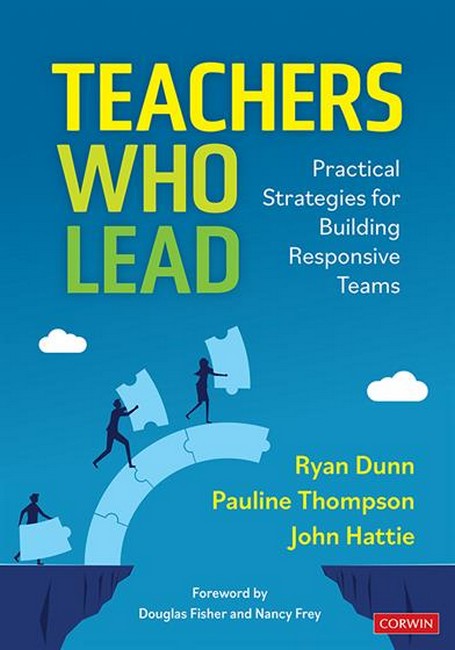This book is important for teachers serving as instructional leaders and the senior leaders recruiting and supporting them. It offers practical strategies and ideas, rooted in theory and practice to those leading in the space between the classroom and the main office. Punctuating the ideas it presents, are compelling stories from the field that provide engaging insights on challenges this level of leadership faces. It is a powerful resource for those seeking to grow their leadership impact over the short and long term. Whether you’re refining your practice or fostering leadership in others, this book is a valuable tool for navigating and excelling in the critical role of middle leader. -Wayne Davies
Here′s a book that so many teachers are looking for: one that helps them help others to extend their skills as teachers. Readable, incisive and immensely helpful, the prospect of leading and teaching feels possible... and enjoyable. -Mick Waters
Unfortunately, those chosen for the role of teacher leader do not always get the proper professional learning to be successful. Dunn, Thompson, and Hattie are providing the catalyst to change that dynamic in Teachers Who Lead. Make no mistake, this book is not just for anyone under the teacher leadership umbrella, it’s for every leader who wants to have a deep impact on students. -Peter DeWitt
This book is an indispensable guide for teachers navigating the complexities of leadership. With a sharp focus on practical strategies for building and sustaining high-performing collaborative teams, it bridges the gap between theory and actionable steps, offering rigor, research, case studies, and tools for reflection. Each chapter is thoughtfully crafted to inspire curiosity and provide clarity, addressing the unique challenges of teacher leadership while celebrating their agency and impact. A must-read for educators and those supporting them, this book equips readers to lead with purpose, strategy, and collaborative expertise. -Barbara Watterston
Teachers Who Lead expertly unpacks the complexity of leadership roles in schools, providing a comprehensive guide to navigating this transition so that leaders can contribute towards aligned school improvement. -Michael Chiles
Teachers Who Lead is an essential resource for instructional coaches, team leaders, and grade level leaders who seek to guide colleagues whilst improve school wide outcomes. The authors present a practical, research informed framework that balances evidence with real-world examples and offers clear strategies that leaders can implement. The book supports teachers’ expertise by drawing on evidence-based practices and professional learning. It shows how leaders can help colleagues strengthen their approach to teaching and build self-confidence in their practice. Collaboration is a key emphasis promoting trust, shared responsibility and collective improvement across teaching teams.
Importantly, the book keeps student learning at the forefront of leadership with every strategy aiming to translate teacher growth into better student outcomes. Whether it be providing feedback, facilitating dialogue or leading improvement initiatives through PLCs, students’ development is at the forefront.
I like the balance of practicality and research. The combination of actionable strategies, case studies and educational evidence makes it both accessible and powerful. For teachers stepping into leadership roles, Teachers Who Lead is an invaluable guide to building collaboration, strengthening expertise and making a measurable difference in student learning. - Deborah Langford, Acting Learning Leader, Tecoma Primary School, Victoria
Dunn, Thompson, and Hattie have created a resource offering practical strategies for educational leaders seeking to positively influence culture, build capacity, and strengthen systems. Written by professionals still connected to classrooms, the text is concise and respectful of educators’ time. Each strategy is illustrated with examples from a variety of year levels, subjects, and contexts, making the ideas accessible and adaptable.
The book incorporates advances in cognitive science and is supported with evidence of recent and relevant effectiveness as shared by practicing educators. The strategies may affirm and extend what many educators already do well, while also offering fresh perspectives and tools that can be readily applied. Importantly, the approaches allow for flexibility and autonomy to apply them individually or embed them within broader faculty and whole-school goals.
This book encourages professional dialogue and contributes to the growing body of evidence-based, practical resources that support teachers and leaders in refining their practice. - Andrew Hislop, Head of Science, QLD

